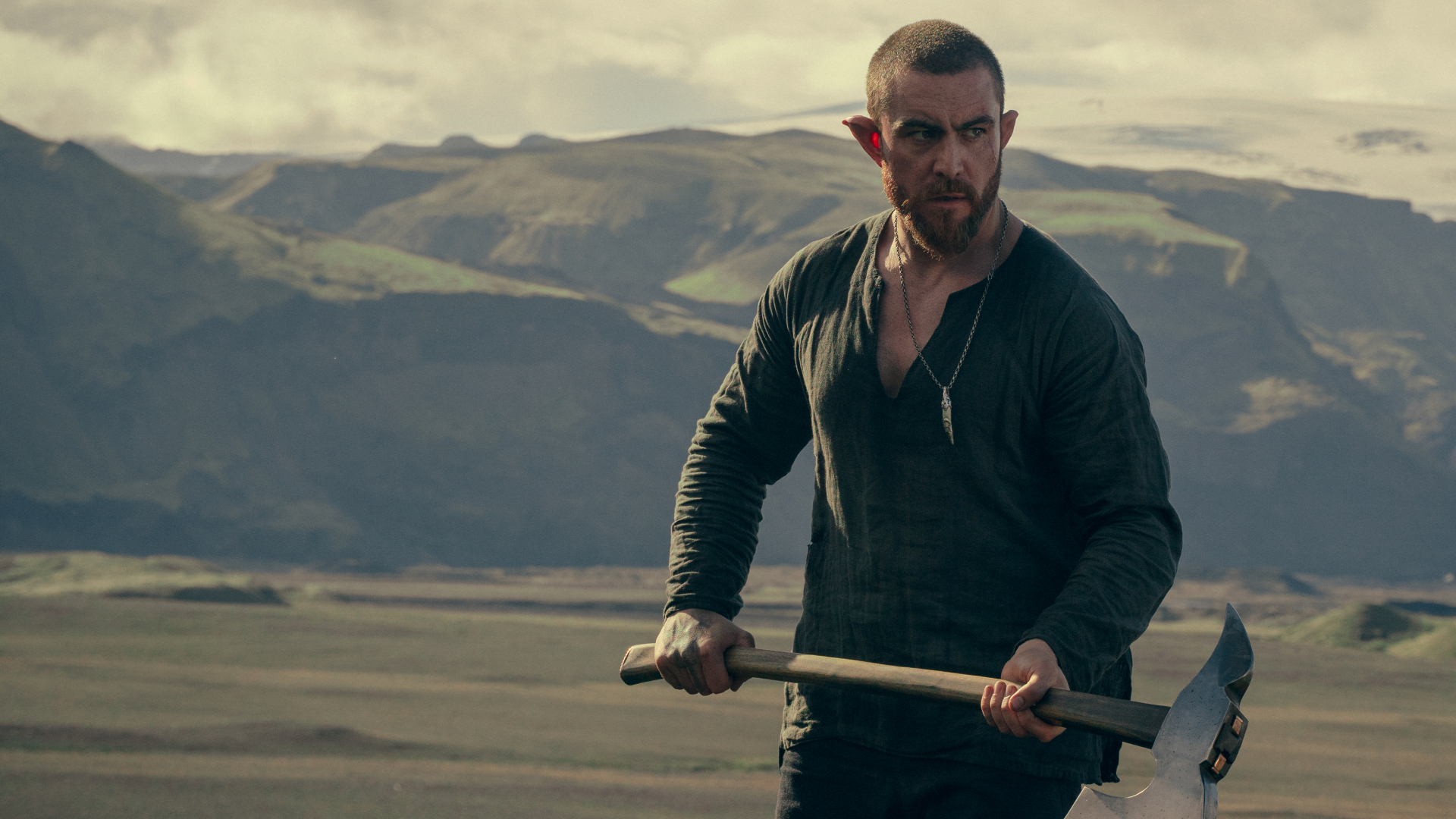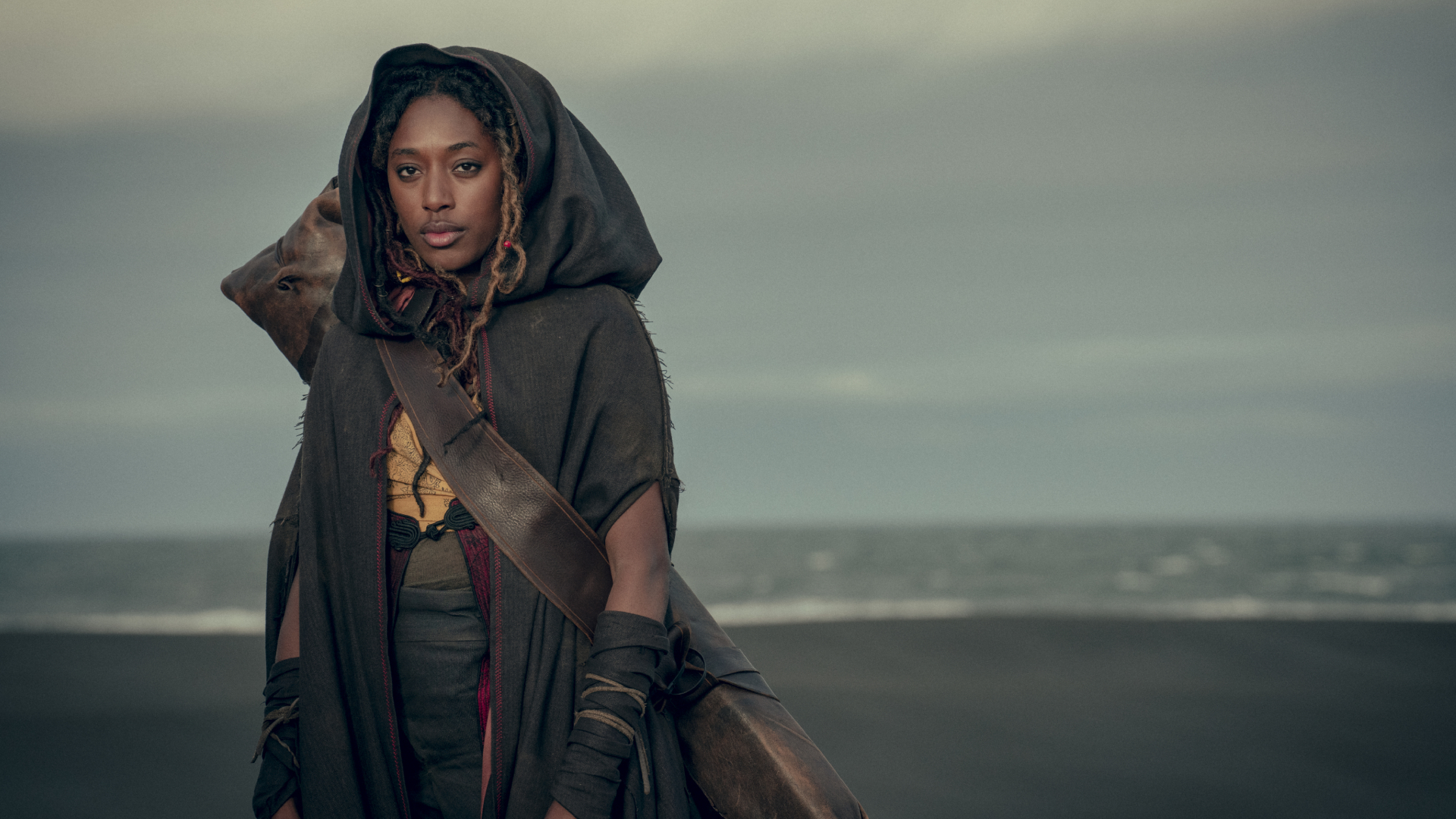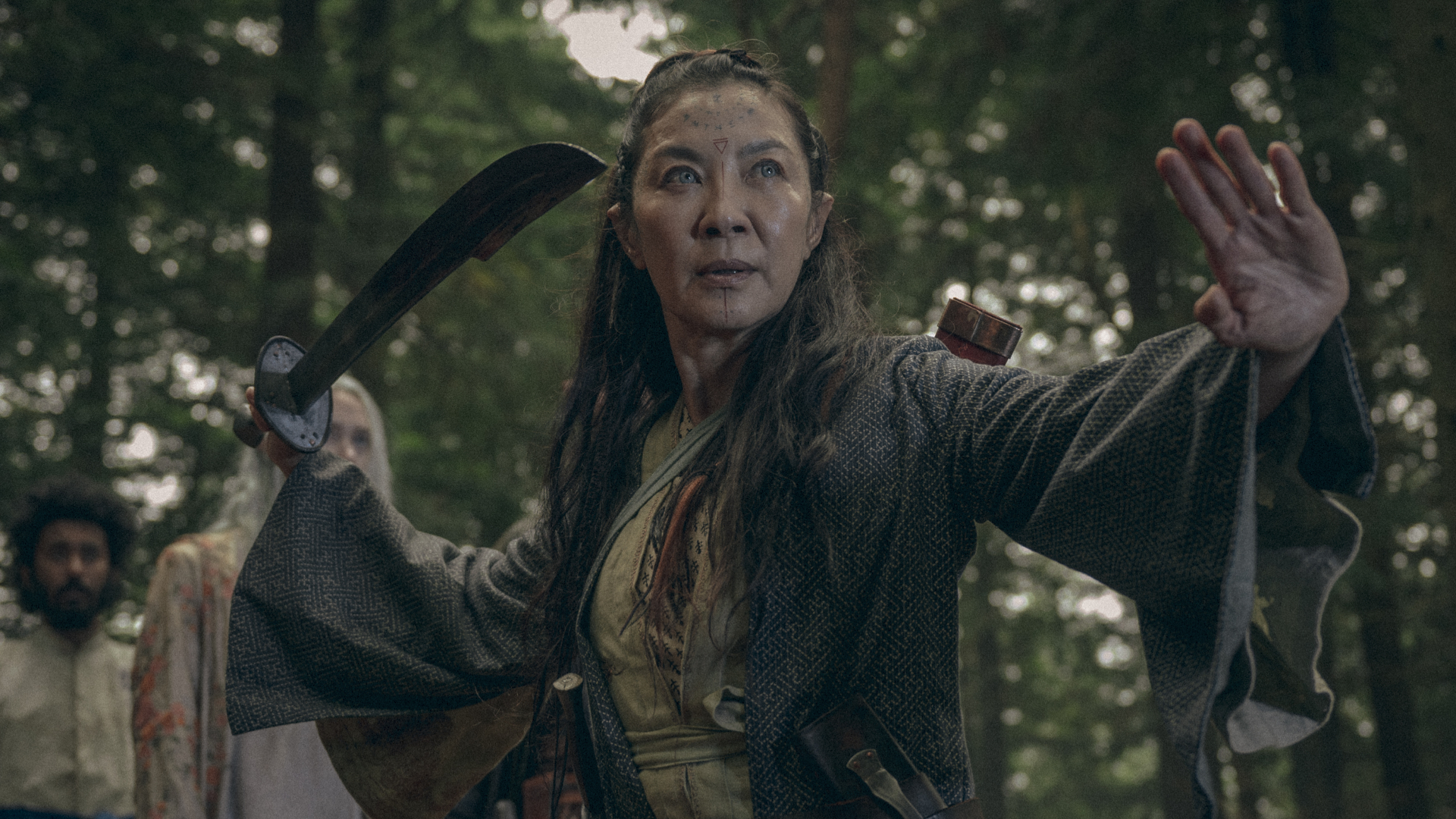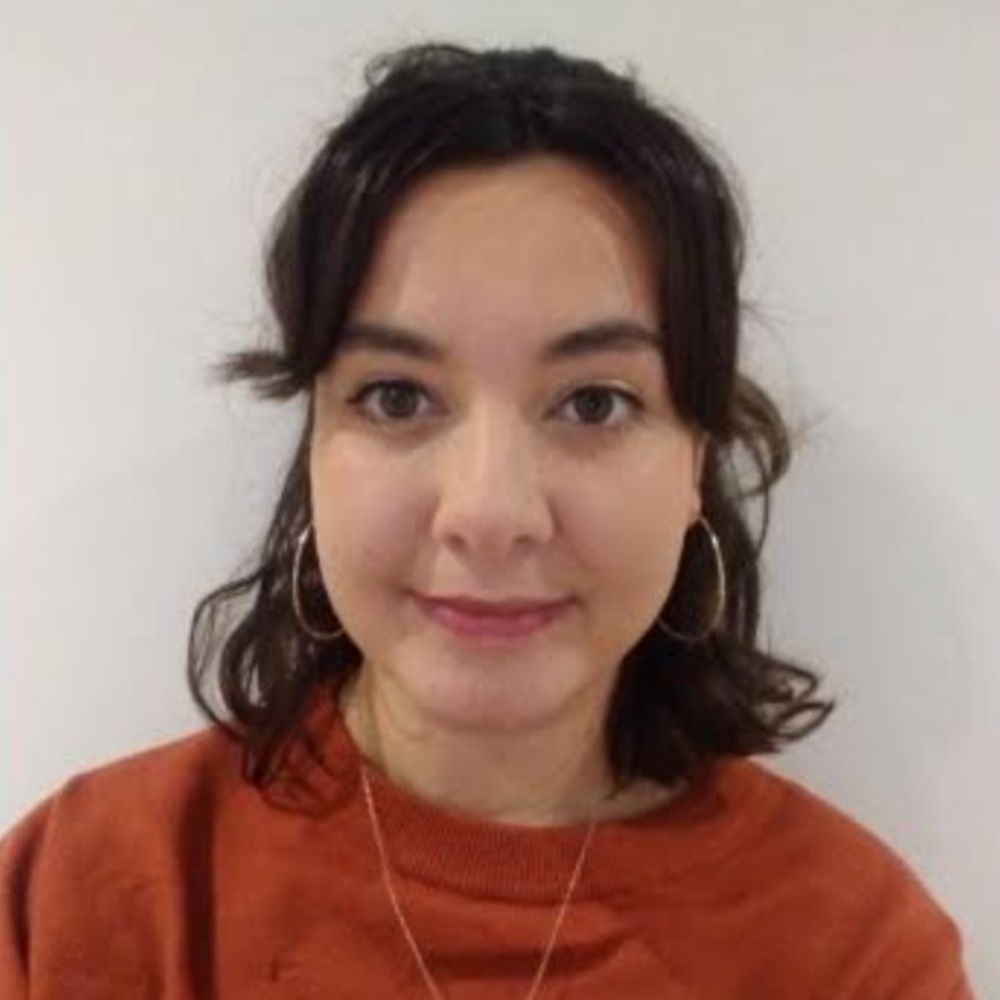The Witcher: Blood Origin cast and creators on creating a new story in a time of change for the Netflix universe
Exclusive: We take a deep dive into the creation of The Witcher: Blood Origin with its cast and crew, as well as its impact on the franchise’s future
The Witcher: Blood Origin started life on a cafe napkin. Declan de Barra, a member of The Witcher’s writing room, had been invited by Netflix to pitch an idea centered around the Conjunction of the Spheres – a cataclysmic event when the worlds of monsters, men, and elves collide. The only problem was that the major event takes up just two lines in author Andrzej Sapkowski’s Witcher novels. There was a lot left to the imagination.
And yet, de Barra remained unfettered. "This never happens because you’re usually beating your head against the wall trying to get a story out, but I started thinking about the Conjunction of the Spheres, and it all came out," he enthusiastically tells GamesRadar+ over Zoom. "I grabbed a pen, got the napkin, and wrote down everybody’s name and what they want – in granular detail."
The final result is Blood Origin, a four-part epic tale set during the height of the elven civilization. Inspired by films like Seven Samurai and 13 Assassins, the limited series follows an unlikely group of seven warriors, drawn together by the forces of fate to tackle an evil growing in the Continent – and takes place 1,200 years before the time of Geralt, Yennefer, and Ciri.
"When you meet the elves in the world of The Witcher, they’re almost pre-agrarian," De Barra explains. "They can’t reproduce, and they’re basically dying off. So I wanted to go, what was that history? How did they go from Rome before the fall to where they are now?"
The outcasts

Blood Origin’s elven society is ruled by class and clans, and our protagonists are the outcasts. It begins with Sophia Brown’s Éile, a traveling elven bard known as The Lark who has been ostracised for choosing music over the life of a warrior. "Music just speaks to her soul," Brown tells us. "She feels out of place, she wrestles with that internally for as long as she can until she eventually decides to leave and not take the position of being Queen’s guard."
She finds common ground with Laurence O'Fuarain’s Fjall, a former member of the warrior group Dog Clan who had to leave his home under mysterious circumstances. The actor says his character has had a "tough life", having been "bred to fight", but just like Éile, he’s seeking something new for himself.
"I think there’s a theme of redemption," he says. "Everybody deserves a second chance and everybody should be open to seeing the world in a different way and not being so narrow-minded." Brown, sitting next to him, agrees: "Each character is discovering their identity."
Sign up for the Total Film Newsletter
Bringing all the latest movie news, features, and reviews to your inbox
The pair recruit a series of fellow castaways to their cause, including Everything Everywhere All At Once’s Michelle Yeoh’s Scian, the last member of a nomadic tribe of elven warriors. Then there are the fighters, Huw Novelli’s brutal Brother Death and Francesca Mills’s dwarven warrior Meldof, as well as magic-wielders, Lizzie Annis’s Zacaré and Zach Wyatt’s Syndril.
"You get to see these really strong personalities battle with each other in an even bigger battle for salvation, of the end of the world and preventing that from happening," says Wyatt of the ragtag group. "Once the group was all together, the dynamic was just bursting with life. You really get a sense of them all needing each other in order to succeed."
"They share this deeply important common goal, that really imbues this little group and this story with such a sense of energy and impulse, and spark," Annis adds.
This camaraderie on screen bled off screen too, according to Mills and her co-star Novelli, who carry much of the emotional heart of the story. "It helps that from day one we got along so well, it just felt like we were chatting," Novelli says. "That’s the good stuff, two souls talking to each other," Mills adds "I’ve got a best friend for life with this guy. To perform with him was just a dream come true."
Familiar but different

Blood Origin acts as a standalone story, but also introduces a key moment in the overarching franchise’s history: the creation of the first witcher. De Barra brought this forward from Sapkowski’s novels, in which they are created after the arrival of the humans, as he thinks there must have been some trial runs.
"It was fascinating to me that something was created so powerful, and then was lost in a cataclysmic event," he says. But don’t expect another silver-haired monster hunter of Geralt’s ilk when we meet this version. "Well, Geralt is the Porsche of witchers," De Barra adds. "Our guy is the Model T. It’s a car but it’s not as recognizable as a Porsche. Our one is the prototype."
As well as tackling witcher origins, key characters like Eredin (Jacob Collins-Levy) are also introduced (we’ll steer clear of book spoilers here, but he’s of great importance the main show going forwards). Familiar characters are also around, including Joey Batey reprising his role of Jaskier.
Part of crafting the interconnected storylines meant working very closely with the main Witcher showrunner (and Blood Origin co-creator) Lauren Schmidt Hissrich, says De Barra. "I was always texting Lauren, 'What about this, what about that?' and 'Oh you know that book you have in your episode, we need to hang on to that,'" he says. "There are lots of Easter Eggs and lots of connections and threads that will become apparent."
For Hissrich, this was a boon – and part of the excitement of creating an expanded Witcher universe on screen. "For me, it was just such a joy when Declan was like, 'I know they are going to come later in the series, are you okay if I introduce them?'" she explains. "I love it as a storyteller, the idea that we will now get to introduce characters that have had 1,200 years of growth and development."
The changing Witcher universe

It’s an interesting time in The Witcher universe for Hissrich, as she juggles its expansion with spin-offs like Blood Origin and Nightmare of the Wolf, and with Henry Cavill’s imminent recasting as Geralt of Rivia. While one might expect such a move to shift plans, Hissrich is clear that the path ahead remains certain. Not only does she share her "excitement" over the "new energy" Liam Hemsworth will bring to the show, but she also feels there’s a lot more to tackle.
"It's funny because Declan knows when I first started writing The Witcher and first hired the writers' room, all you want to do is write one good script that then becomes one good story, eight good scripts, a good TV show," she tells us. "And then you just hope and pray that anyone watches it. When people did, we got the chance to start expanding and bringing in more stories. To me, that's sort of where the possibilities are endless – and that's super exciting to me.
"There are books that the main series will always follow and we will find a natural end for the series when the books end. But what Blood Origin shows us is that there are so many more stories that we don't have the time to explore, that even Sapkowski perhaps didn't explore as well as he wishes he could have. I just think there's so much possibility."
The Witcher: Blood Origin is released on Netflix on Christmas Day. For what to stream now, check out our guide to the best Netflix shows.

I’m the Deputy Entertainment Editor here at GamesRadar+, covering TV and film for the Total Film and SFX sections online. I previously worked as a Senior Showbiz Reporter and SEO TV reporter at Express Online for three years. I've also written for The Resident magazines and Amateur Photographer, before specializing in entertainment.


